MercoPress. South Atlantic News Agency
Tag: Federal Reserve
-
Wednesday, October 24th 2018 - 08:34 UTC
Trump again bashes the Fed, saying it posed the biggest risk to the US economy
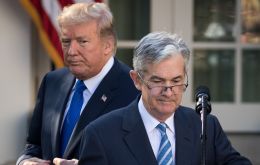
United States president Donald Trump has sharpened his attacks on the Federal Reserve, saying it posed the biggest risk to the US economy. He also targeted Fed chairman Jerome Powell, telling the Wall Street Journal he seemed “happy” to be raising interest rates.
-
Friday, October 5th 2018 - 08:36 UTC
Argentine Peso slips on Thursday on prospects of higher US interest rates
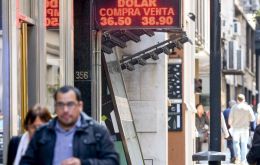
Argentina’s Peso fell on Thursday, pressured by the recession-hit country’s dismal inflation outlook and higher U.S. interest rates that have pushed capital away from riskier emerging markets and toward the greenback, local traders said. The peso shed 1.85% to close at 38.4 per dollar after having gained 9.58% over the previous three days under a freshly-renegotiated International Monetary Fund financing deal that calls for tougher fiscal and monetary policy measures.
-
Wednesday, September 26th 2018 - 21:13 UTC
Fed raises interest rate and announces a third increase this year
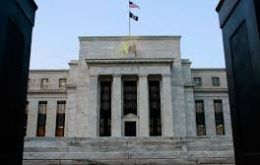
The United States Federal Reserve announced on Wednesday, after a two-day policy meeting, that it would raise interest rates for the third time this year. The decision, which had been widely expected, raised the federal funds rate by 25 basis points, to a range of 2% to 2.25%.
-
Monday, July 23rd 2018 - 06:48 UTC
US Treasury Secretary denies any chance or a currency war
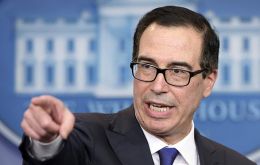
United States Treasury Secretary Steven Mnuchin said there’s no chance of a currency war erupting. When asked whether investors should be concerned about the prospects of one, he said “no,” declining to elaborate during a press conference in Buenos Aires on Sunday.
-
Saturday, July 21st 2018 - 07:59 UTC
Trump “not happy” with the Federal Reserve recent interest rate increases
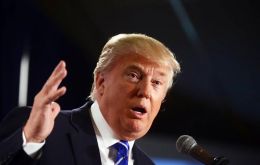
President Donald Trump cast aside concerns about the Federal Reserve’s independence, saying he was “not happy” with the Fed’s recent interest rate increases. Trump told CNBC in an interview: “I don’t like all of this work that we’re putting into the economy and then I see rates going up.”
-
Thursday, July 19th 2018 - 07:50 UTC
Brazilian Real and Argentine Peso lose ground against the dollar

Latin American currencies fell against the dollar across the board on Wednesday as traders continued to focus on recent statements by key U.S. monetary policy makers.
-
Wednesday, July 18th 2018 - 07:33 UTC
Jerome Powell admits trade policy could complicate Fed's forecasts
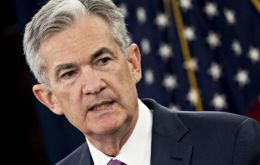
A trade war with China, the European Union and other trading partners is casting some doubts about the U.S. economic future, Federal Reserve Chairman Jerome Powell said on Tuesday. And the longer it goes, the more potential harm it could cause, Powell told the Senate Banking Committee at a hearing about the Fed's monetary policy and the economy.
-
Thursday, May 31st 2018 - 08:12 UTC
Fed proposes simplifying trading rules for foreign banks and funds
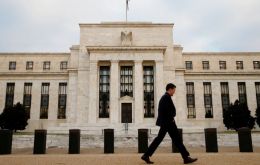
Foreign banks and funds are set to benefit from a move by U.S. regulators to simplify a trading rule that foreign banks and regulators say has inadvertently complicated firms operating as far afield as Europe and Asia. The Federal Reserve, alongside other U.S. regulators, on Wednesday proposed rewriting the “Volcker Rule” introduced following the 2007-2009 financial crisis in a bid to simplify the regulation and make it easier for banks to comply.
-
Thursday, May 24th 2018 - 07:12 UTC
May Fed minutes suggest a rate hike would soon be appropriate; next meeting in mid-June
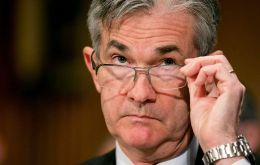
Federal Reserve officials earlier this month suggested that another rate hike was on the way soon, while also noting several risks facing the economy, ranging from rising wage pressures to potential harm from the Trump administration's trade policies.
-
Wednesday, May 9th 2018 - 07:10 UTC
Latin American (and global) currencies hit by strong dollar and Trump's policies
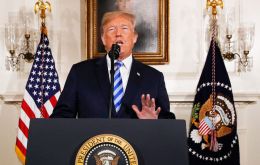
The dollar hovered near a four-month high on Tuesday, continuing to draw support from higher Treasury yields and upbeat prospects for the U.S. economy, leaving its major rivals such as the Euro struggling and other Latin American currencies including the Argentine peso down sharply.
